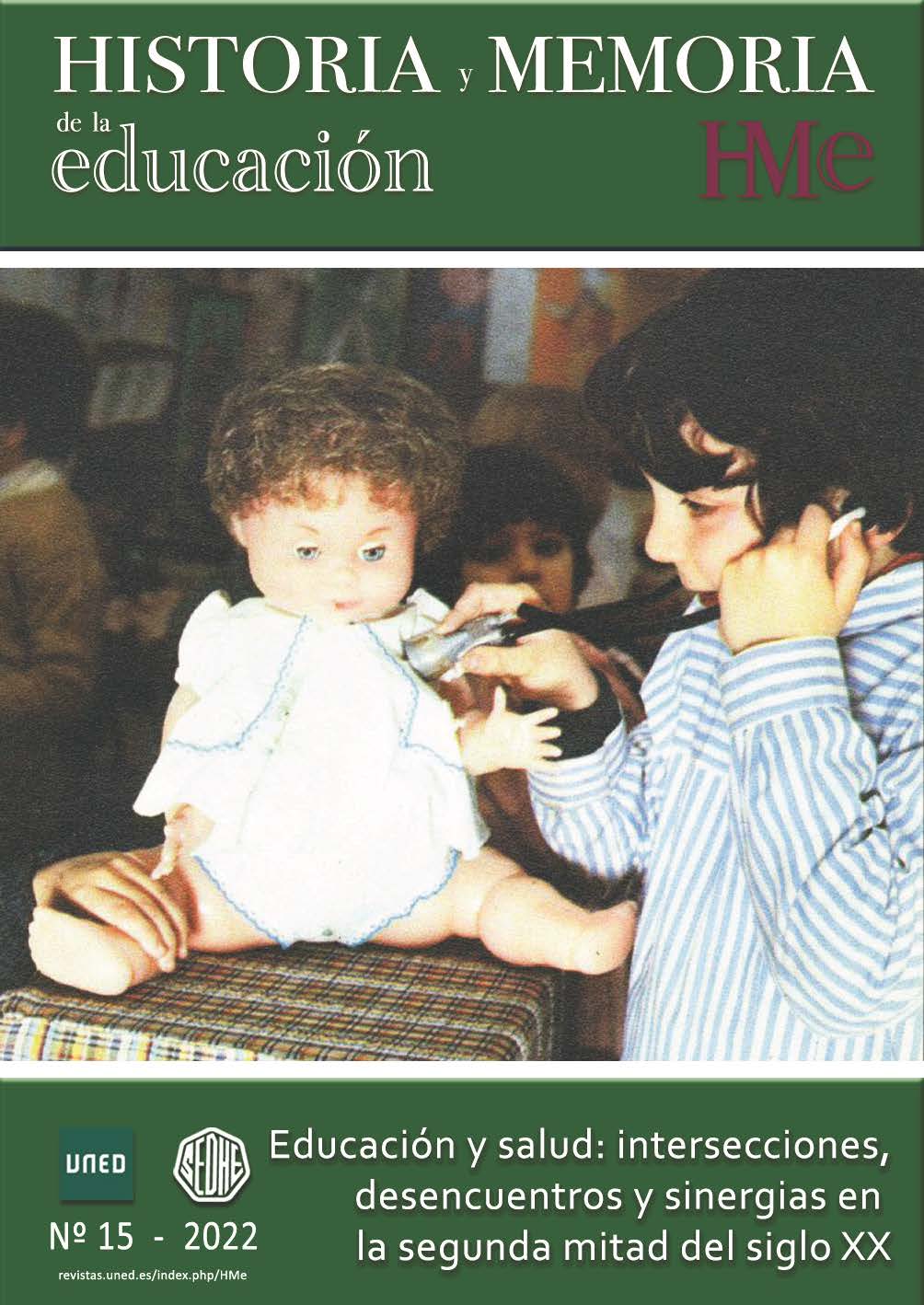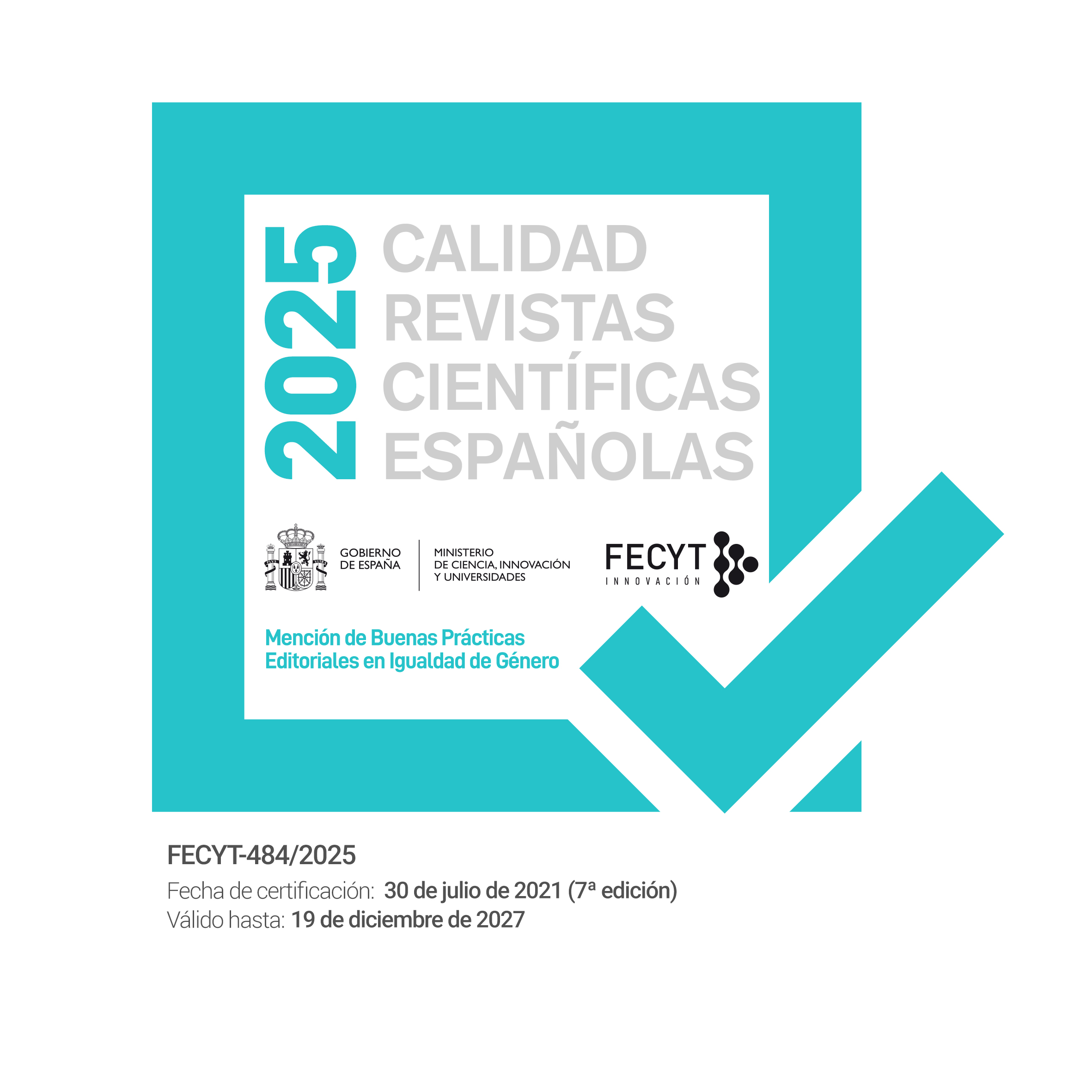The teaching of the Asturian language according to Conceyu Bable. Democracy, autonomy, identity, and linguistic normalization in the Asturias of Transition (1974-1983)
DOI:
https://doi.org/10.5944/hme.15.2022.27661Keywords:
Bilingual education, Linguistic claim, Asturian language, Linguistic conflictAbstract
The appearance of Conceyu Bable in 1974, a political-cultural collective of linguistic vindication, marks the beginning of the modern movement for the recovery of the Asturian language. The group broke with the conservationist approach from which the promotion of the Asturian language had been addressed until then, claiming the language as an absolute and unitary code and promoting its social and political normalization. From this perspective the schooling of the language emerged as a priority objective of its normalization. This article tries to unravel the conceptual framework that supported the educational discourse of this movement, as well as the key ideas for the insertion of the Asturian language in the school system that had to adjust to it. School demand revolved around political-cultural as well as educational considerations. Straddling late Francoism and the Transition, the teaching of the language was aired by Conceyu Bable as a democratic, progressive, and autonomous demand. On the other hand, analyzing Asturian reality from the perspective of a sociolinguistic scenario of idiomatic conflict, led the group to recognize the need to extract the native language from its marginalized condition and the rejection in schools that it had historically faced. Conceyu Bable proposed the transformation of the school as a sensitive and respectful space for the expression of the Asturian language and as an instrument capable of transmitting its literacy and knowledge from a scientific approach.
Downloads
References
Brugos, Valentín. Conceyu Bable: venti años. Uviéu: Trabe, 1995.
Cano, Ana María et al. Gramática Bable. Uviéu: Ediciones Naranco, 1976.
Costa Rico, Antón. «A escola que mudou: dinámicas, innovacións e experiencias na educación en Galicia (1961-2000)». Sarmiento 11 (2007): 7-36.
Cummins, Jim. «Qué sabemos de la educación bilingüe? Perspectivas psicolingüísticas y sociológicas». Revista de Educación 326 (2001): 37-62.
Cummins, Jim. Lenguaje, poder y pedagogía. Madrid: Morata, 2002.
Dávila, Pauli. «La renovación pedagógica en el País Vasco (segunda mitad del siglo XX)» Sarmiento 9 (2005): 85-103.
Dávila, Paulí y Ana Eizaguirre Sagardia. «Alfabetización y euskaldunización en Euskal Herria». En Leer y escribir en España. Doscientos años de alfabetización, dirigido por Agustín Escolano, 187-211. Madrid: Fundación Germán Sánchez Ruipérez, 1992.
Escolano, Agustín. La España cubista de Luis Bello. Valladolid: Universidad de Valladolid, 2014.
García Arias, Xosé Lluis. Llingua y sociedá asturiana. Uviéu: Conceyu Bable, 1976.
García Arias, Xosé Lluis. Llingua y sociedá asturiana. Xixón: Comuña Lliteraria, 1984.
Geniola, Andrea. «El nacionalismo regionalizado y la región franquista: dogma universal, particularismo espiritual, erudición folklórica (1939-1959)». En Naciones y Estado. La cuestión española, editado por Ferran Archilés e Ismael Saz, 189-224.Valencia: Universitat de València, 2014.
González-Agàpito, Josep. «Dos formas de construir España: educación e identidad nacional. Una visión desde la cultura catalana». Historia de la Educación 27 (2008): 195-213.
González-Agàpito, Josep. «Catalán o castellano: la alfabetización y el modelo de Estado», En Leer y escribir en España. Doscientos años de alfabetización, dirigido por Agustín Escolano, 141-163. Madrid: Fundación Germán Sánchez Ruipérez, 1992.
González Riaño, Xosé Antón. Manual de sociollingüística. Uviéu: ALLA, 2002.
Monés, Jordi. «La renovació pedagògica a la postguerra en Catalunya (1950-1980)», Sarmiento 16 (2012): 57-71.
Núñez Xeisas, Xosé Manoel. «Nuevos y viejos nacionalistas; la cuestión territorial en el tardofranquismo, 1959-1975». Ayer 68, no. 4 (2007): 59-87.
Rodríguez Valdés, Rafael. «El bable y los bablistas. La paya nel güeyu axenu..., un documentu de Matías Conde», Lletres Asturianes 91 (2006): 39-68.
Rodríguez Valdés, Rafael. «Crónica de Conceyu Bable». En Conceyu Bable nes Fueyes Informatives (1976-1985), 9-27. Uviéu: Trabe, 2006.
Ruitiña, Cristóbal. Asturias Semanal. El nacimiento de un periodismo democrático. Xixón: Zahorí Ediciones, 2012.
San Martín, Pablo. «La Doctrina Asturianista nel tiempu». En Vizconde de Campo Grande, Ceferino Alonso y José González, Doctrina Asturianista, 8-66. Xixón: Fundación Nueva Asturies, 1999.
San Martín, Pablo. La nación (im)posible. Uviéu: Trabe, 2006.
Viejo, Xulio. «Sociedá y discursu llingüísticu en Conceyu bable». En Conceyu Bable n’Asturias Semanal, 23-35. Uviéu: Trabe, 2004.
Zabaleta, Iñaki; Joxe Garmendia e Hilario Murua Cartón. «Movimiento popular y escuela en el franquismo: las ikastolas en Guipuzkoa», Historia de la Educación 34 (2015): 305-336.
Zimmerman, Patrick. Faer Asturies. Uviéu: Trabe, 2012.
Downloads
Published
How to Cite
Issue
Section
License
Copyright (c) 2021 Historia y Memoria de la Educación

This work is licensed under a Creative Commons Attribution-NonCommercial 4.0 International License.
Authors who publish in Historia y Memoria de la Educación agree to the following terms:
- Authors retain copyright and grant the journal right of first publication with the work simultaneously licensed under a Creative Commons Attribution-NonCommercial 4.0 International that allows others to share the work with an acknowledgement of the work's authorship and initial publication in this journal.
- Authors are able to enter into separate, additional contractual arrangements for the non-exclusive distribution of the journal's published version of the work (e.g., post it to an institutional repository or publish it in a book), with an acknowledgement of its initial publication in this journal.
- Authors are permitted and encouraged to post their work online (e.g., in institutional repositories or on their website) prior to and during the submission process, as it can lead to productive exchanges, as well as earlier and greater citation of published work (See The Effect of Open Access).












